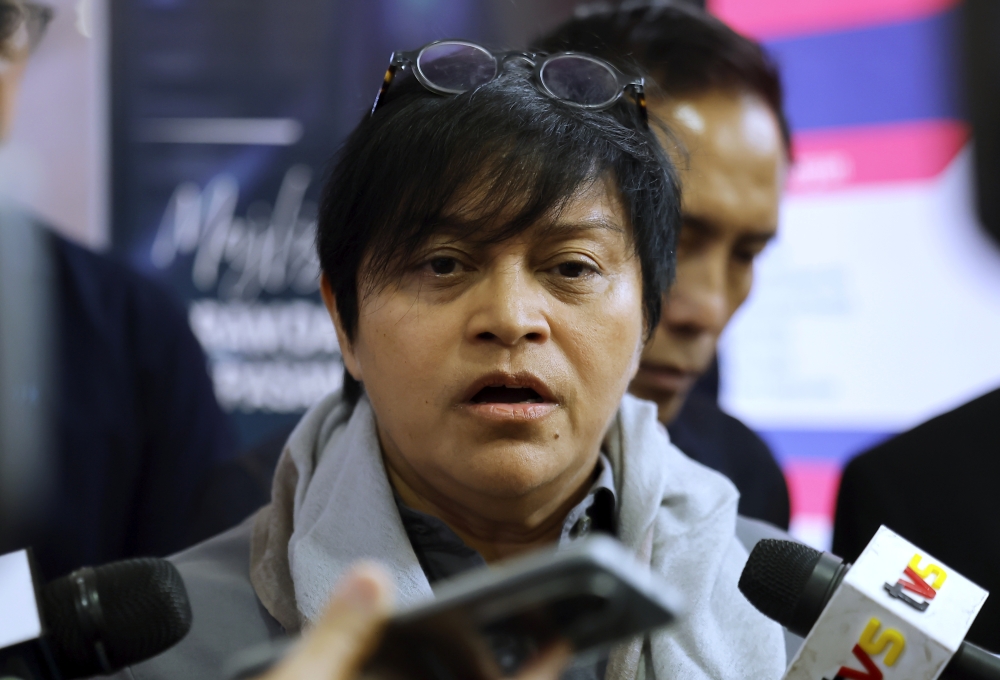PETALING JAYA, Sept 13 — Nadiah Hamzah may have been called “one to watch” by US entertainment magazine The Hollywood Reporter, but the Malaysian filmmaker isn’t resting on her laurels.
Her upcoming debut feature Motif tells the story of a missing teenage girl in a small town and the case’s female investigator played by Sharifah Amani.
The crime thriller which touches on the institutionalised sexism and class divisions in Malaysian society has been much talked about following its world premiere at Italy’s Udine Far East Film Festival in April this year where it joined two other Malaysian films, Fly by Night and Two Sisters.
The filmmaker was one of three Malaysians who won bronze at Cannes Lion 2019 in France for their anti-bullying Public Service Announcements (PSAs).
Asked how she anticipated the response of Malaysians will be to Motif, Nadiah said audiences here can be hard to predict but she hopes its Scandinavian noir quality will set it apart from the usual horror and action flicks.
“I am sure the local audiences crave for choices, so I'm hoping Motif will be that pick of the week for them,” the Penangite told Malay Mail.
Motif’s fellow Udine film Fly by Night was a festival favourite but didn’t do as well in cinemas here.
Is she worried it will suffer the same fate.
“Of course! There’s always that constant worry that my work will be judged but I acknowledge that this is something beyond my control.
“All I can say is that Motif is a true labour of love, made by a village of people who jumped on this crazy ride of making my vision a reality, and hopefully all of this love translates on-screen,” said Nadiah.
The former McCann Erickson copywriter also shared her thoughts on why critically acclaimed films such as One Two Jaga and Fly by Night bombed at Malaysian cinemas.
A fan of these films, Nadiah believes they were victims of poor marketing and positioning, going on to explain that obtaining funds to make a film is difficult as it as and stretching that budget to cover a marketing plan is equally tough.
“If these two films had access to the same amount of funds that big studio films have access to, I believe they could have garnered better response from the audience and would probably have had better box office takings.
“Our audience needs a reason to watch your film, but if they are not even aware of a film's existence, then your film is not even an option,” she said.
The Tisch School of the Arts, New York University graduate often cites the late Yasmin Ahmad (Sepet, Talentime) as an inspiration.
For many Malaysians, Yasmin’s films captured the complexities of a multicultural society viewed through an empathetic lens but a decade later, her voice is one that is still missing in our films.
“Yasmin was such a commanding presence who was able to speak her voice but we also have to remember she was 47 when Sepet, her first theatrical feature was released to critical acclaim.”
Just like Nadiah, Yasmin had to make her mark in the advertising world first before she chose to be in the director’s seat.
“There are so many young female filmmakers here, and they’re all struggling to be heard — there’s just little to no space at all for them to showcase their talent and practice their craft — let alone be given the means to make a feature.
“If studios and broadcasters made it a conscious effort to give equal opportunities to female directors, then we would see a lot more female voices in Malaysian cinema,” Nadiah added.
On her experience as an emerging female director, Nadiah said the crew in Malaysia, mostly men, are professional and treat film directors with respect regardless of gender.
She found it is often those in positions of power, including women themselves, don’t trust a woman in the driving seat.
“There is a perception that when a project is technical, or involves sports and cars for instance, or simply ‘big budget’ — it’s too much for a woman to handle, and automatically it will go to a male director, even though his body of work might not be as strong as his female counterpart,” she said.
Which is why the biggest lesson she’s learned so far is that women have the responsibility to empower other women.
“I might not be very famous or influential, but if I can make it inclusive for women at every opportunity I get, these are baby steps towards a better future for women, especially women in film,” she said.
Motif premieres nationwide on September 26.






















